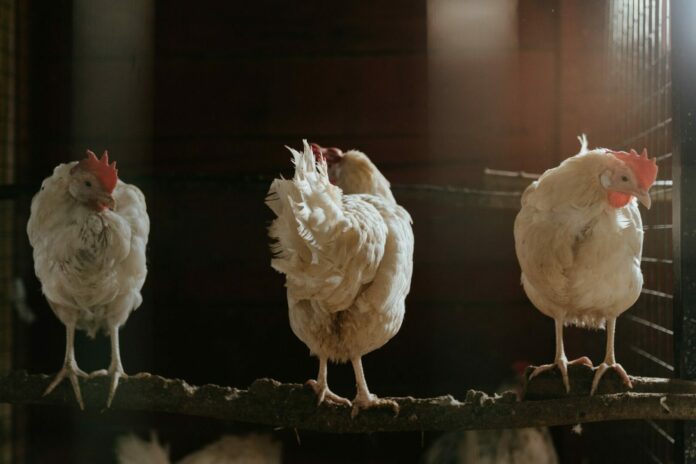Mary Consolata Njeri’s dream to become a poultry farmer was actualized when her house manager’s father gifted her a chicken. Njeri says she did not consume the chicken as many would but added three more to grow her flock.
With her four chickens, she started hatching eggs and broodings chicks, which later multiplied to over 100 chickens, a journey she is proud of. At this stage, she used the chickens for family consumption before converting her farming to her main source of income. Njeri says she quit her well-paying job in the petroleum industry, where she had worked for over ten years to focus on poultry farming.
“I decided to quit and start poultry farming last year, and I thank God and am happy it’s the right decision I made because I have seen a lot of progress. From 100 chickens, I’m now at almost 700 chickens, and I’m looking to have 1,000 chickens in the next few months… I realized there is money in chicken,’’
said Njeri.
Njeri rears two types of chicken breeds, the local breed known as kienyeji and the improved local breed. The price she sells depends on the number of birds the customer buys.
Poultry farming method that will boost your earnings
She chose poultry farming over other types of farming because of her love for birds. Her land size was also a consideration, given that it couldn’t accommodate other farming activities such as crop farming or cattle farming.
“Comparing with where I live and the farm I own, it is not as big, so I saw what I could utilize most with the small farm that I have was the poultry business,’’
adds Njeri.
According to Njeri, the high feed cost is the biggest challenge poultry farmersare currently facing. A 70kg bag of layers’ marsh is selling at Sh4,500 from Sh3,800 in April last year, and chick mash is going for Sh4,940 from Sh4,200. This, Njeri says, has pushed the cost of production upper affecting the overall chicken market.
Meet the Rwandese school teacher who earns millions from poultry farming
‘’There are people out there who are ready to buy the whole flock, but again what price are they giving you, and how much did you spend on the chicken? We are hoping the feed manufacturers will revise their prices,’’ laments Njeri, adding that she is planning to start manufacturing her own feed to cut expenses.
To start the poultry business, Njeri says one needs to have a plan because it’s a type of business that involves a beehive of activities. Her day-to-day routine on her farm includes:
- Vaccinating the chickens.
- Disinfecting the full house.
- Changing the flocks.
- Counting the flocks to check whether her records match the number of the flock.
She notes that one needs to start small and be patient to thrive in this business.
“The secret is learning from small to big. Don’t try to imagine that you will become a millionaire overnight. It has its processes. You have to start small, learn with the small, face the challenges, fail, wake up, and in the process, you will be a better farmer,’’
advises Njeri.
Besides engaging in poultry, Njeri offers training to farmers who wish to engage in poultry farming at no cost.








